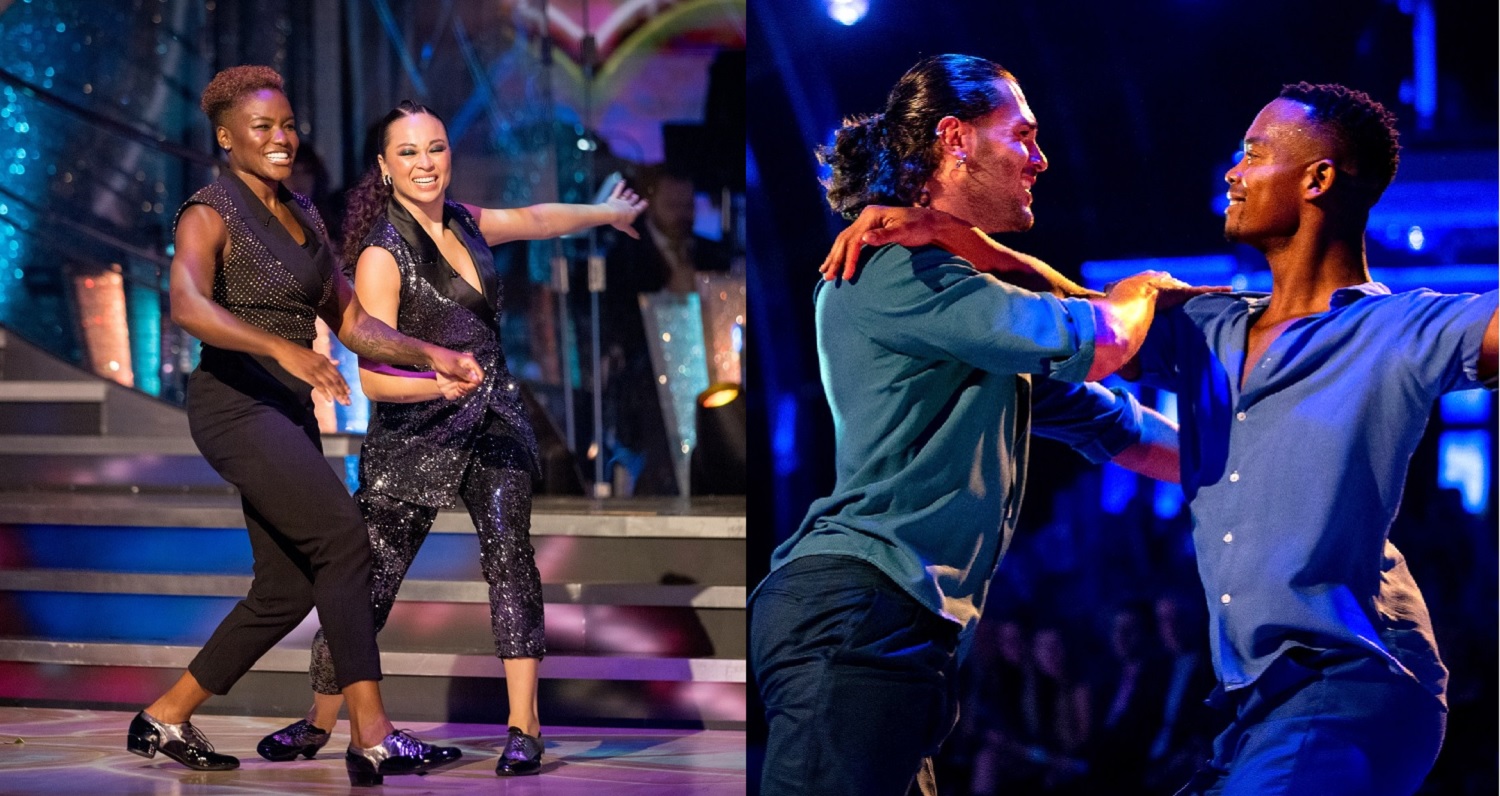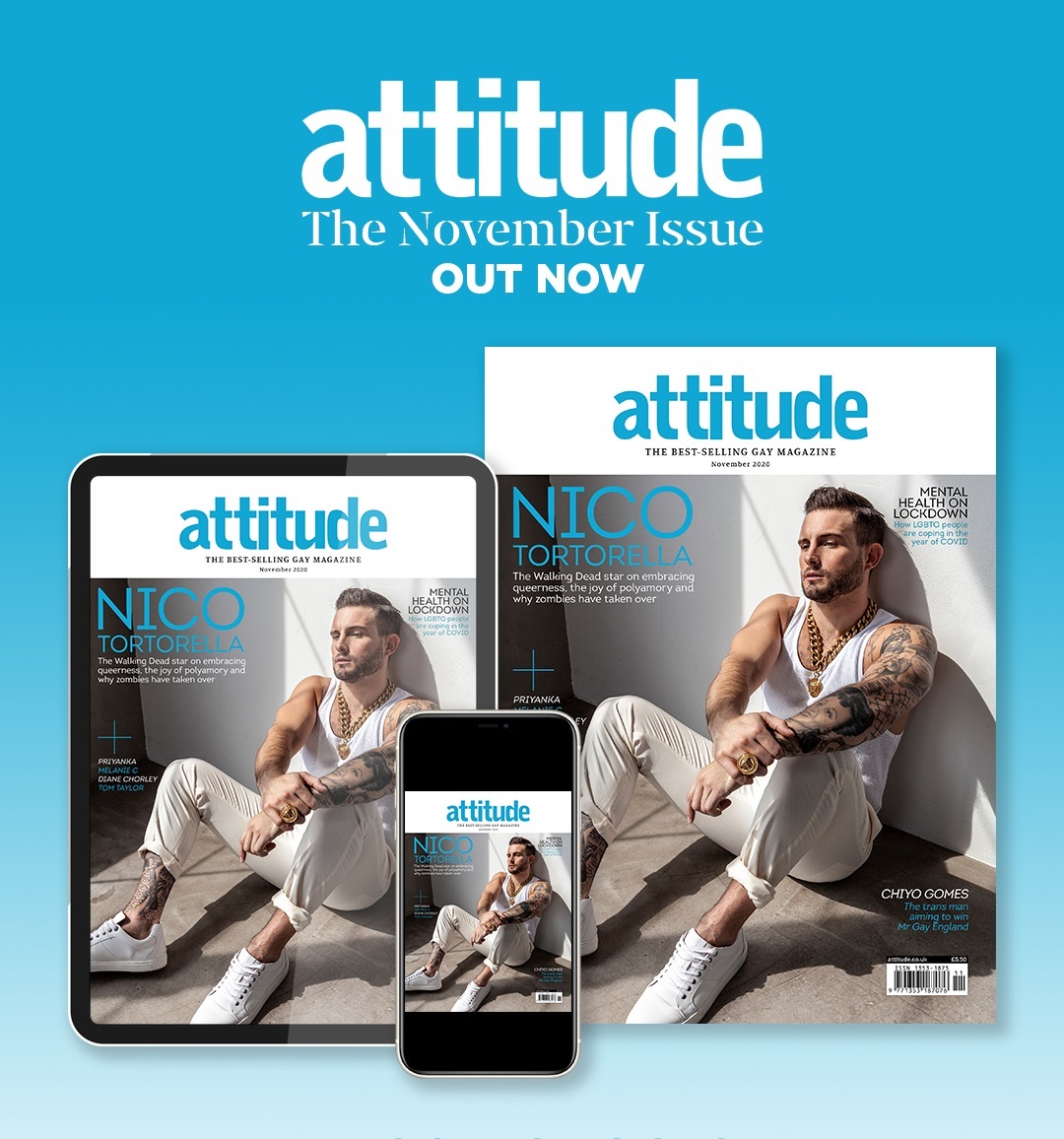Opinion | ‘Bored of the Strictly same-sex couples row? Wake up’
It took a relative saying there are "too many gays on TV" to make me see representation on Strictly matters.

(Words: Jamie Tabberer. Pictures: BBC [depicting Nicola Adams and Katya Jones, and Graziano Di Prima and Johannes Radebe dancing last year])
A distant, older relative of mine, I heard through the grapevine, recently said something straight out of a badly-scripted TV show.
“There are too many gays on TV.”
They also called gay sex “disgusting” and came out as Christian (“the Bible says so”), but that’s… dull.
The retro TV comment, however, feels oddly relevant for two reasons.
The first: Strictly Come Dancing‘s historic pairing of Olympic boxer Nicola Adams and pro-dancer Katya Jones has prompted 200+ Ofcom complaints this year already. There will surely be more when the girls make their proper dance floor debut this Saturday coming.
The second, conversely, is we’re living in a golden age of on-screen representation. LGBTQs on TV are literally at a ‘record high‘.
“I’m not the only one numb to LGBT representation”
When the state of play is so full of contradictions, it’s good to take stock. Let’s count our blessings for a moment.
There’s a sequel to The L Word. Russell T Davies’ new queer drama It’s a Sin is around the corner. RuPaul’s Drag Race is entering its 13th season. Pose has introduced a wave of trans talent to the world. An all-gay cast recently led Netflix’s Boys In the Band. Effortlessly inclusive streamers like Sex Education dominate cultural conversation.
It’s amazing, obviously. But here’s the thing: I can’t keep up. I’m overwhelmed. I wish I could say “I have three shows on the go as it is,” but actually, I can barely manage one.
As such, I’m slightly numb to LGBT representation. The dangerous irony being, of course, that my homophobic relative is not.
“Saying ‘who cares?’ means being in the pockets of those who seek to erase us”
Bear in mind, my relative has doubtless watched terrestrial TV night-in, night-out for decades; has seen every gay kiss on EastEnders, every show-stealing LGBTQ+ on I’m a Celeb.
Of course, on the whole, such exposure does Middle England the world of good. Another relative of mine, for example, went from mime-vomiting at the sight of a gay couple on Crossroads in 2001 to repeatedly voting for Nadia Almada to win Big Brother in 2007.
But for some armchair critics, resentment over increasing queer representation has been long simmering. My point being: we can’t take representation for granted.
“With this year’s format change, Strictly suddenly seems vital”
So, when people say ‘who cares?’ to the Strictly same-sex dancing row. I say: this puts us in the pockets of those who seek to erase us.
Complaints about dancing technicalities, meanwhile, miss the larger, more important point. (Graham Norton has thankfully apologised for saying earlier this year: “If you’ve got two partners who can do lifts and men’s bodies are different shapes, how would that work?”)
Granted, Strictly isn’t my cup of tea. I’ve always found it fusty and trivial. But with this year’s format change, having finally succumbed to progress, it suddenly seems vital.
I for one can’t wait to tune in to support Nicola, while picturing my relative’s face at the sight of her in a suit, turning to the Bible she’s probably never read.
Too many gays on TV? With the right amount of pressure, this is just the beginning.
Strictly Come Dancing returns to BBC One on Saturday.
The Attitude November issue is out now to download and to order globally.
Subscribe in print and get your first three issues for just £3, or digitally for just £1.54 per issue.

